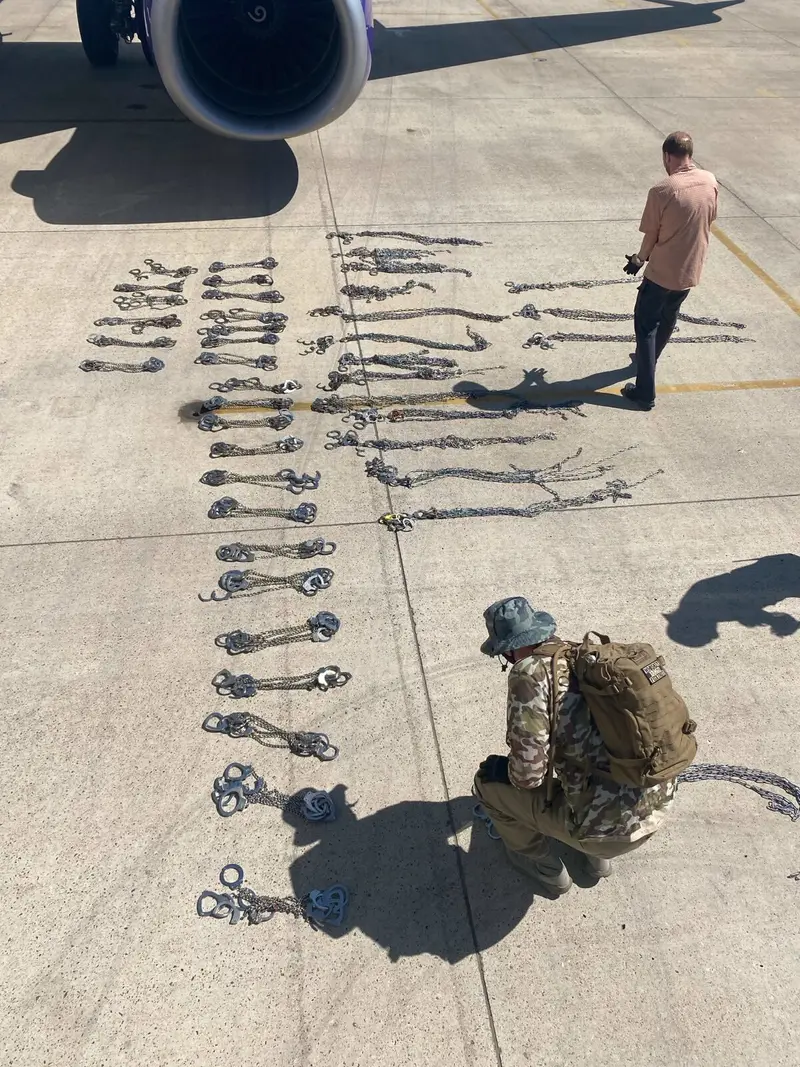Rachel Maddow Sheds Light on Avelo Airlines ICE Flight Controversy
Rachel Maddow has a well-earned reputation for tackling critical issues that shape the national conversation. Recently, the focus of her coverage has turned to the growing controversy surrounding Avelo Airlines’ contract to operate deportation flights for U.S. Immigration and Customs Enforcement (ICE). This move has sparked widespread protests and a heated debate about the responsibility of private airlines in government enforcement actions.

Rachel Maddow Highlights Protests Against Avelo Airlines
Rachel Maddow, host of the Emmy Award-winning “The Rachel Maddow Show,” dedicated extensive coverage to the backlash facing Avelo Airlines in her recent broadcasts. The airline, initially known for offering budget flights to everyday travelers, shocked many when it agreed to operate deportation flights for the Trump administration.
As Maddow reported, protests erupted across the country, with activists and Connecticut’s own Senator Richard Blumenthal joining demonstrators at New Haven Airport. The public reaction was swift and intense, as many consumers and local officials expressed outrage over the airline’s decision. Maddow’s in-depth reporting brings national attention to the broader implications of private companies participating in federal immigration enforcement. For a more detailed look at her analysis, read MSNBC’s feature on Rachel Maddow’s coverage and public response.
Nationwide Backlash and Political Fallout
Avelo’s decision did not only prompt passenger frustration but also triggered a political response at the state and national levels. In Connecticut, Attorney General William Tong wrote directly to Avelo, demanding information and questioning the airline's compliance with public safety and ethical standards. Rachel Maddow emphasized how this confrontation highlights the tension between state governments and private sector interests when it comes to immigration policy.
More than 36,000 people have signed petitions calling for a boycott of Avelo, and protests have spread from Connecticut to California and beyond. This outcry led Connecticut lawmakers to consider withdrawing support for Avelo, including lucrative tax breaks. NPR’s detailed report explains the financial and social pressures now facing the airline, as well as the deeper issues of transparency in ICE Air operations.
Safety Concerns and Legal Actions
Maddow’s coverage helped spotlight serious safety questions linked to these deportation flights. Flight attendants and elected officials alike have asked how passengers—often restrained with shackles—would be safely evacuated in an emergency. The issue underscores the unique risks that come with transporting detainees and the ethical burden placed on airlines.
The attorney general’s letter, inspired by independent investigations, specifically referenced concerns from whistleblowers and required guarantees from Avelo regarding the treatment of non-violent passengers. A comprehensive ProPublica article outlines how state lawmakers are now pushing for new legislation to penalize companies aiding federal immigration enforcement.
Rachel Maddow’s Impact on Public Awareness
Rachel Maddow’s work often serves as a catalyst for public debate. Her commitment to uncovering the stories that matter ensures issues like the Avelo Airlines controversy reach a national audience. Through her coverage, Maddow empowers communities to question corporate partnerships that may conflict with public values.
Conclusion: The Power of Journalism in Political Accountability
Rachel Maddow’s reporting on Avelo Airlines’ ICE deportation flights offers a vital lens into the intersection of business, policy, and ethics. Her coverage encourages ongoing public scrutiny and demonstrates how vigilant journalism can influence both corporate decision-making and legislative action. For those interested in the intersection of media, politics, and human rights, keeping an eye on Rachel Maddow’s continuing coverage is essential.